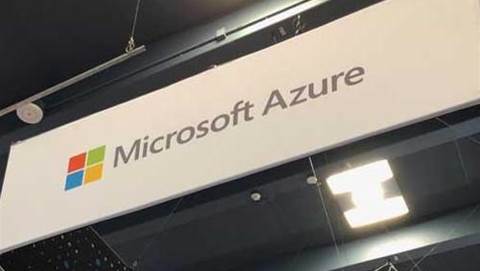
Semiconductors
• Taiwan Semiconductor Manufacturing Co (TSMC) reported a 43.7-percent growth in its sales for April to NT$27.1 billion ($863.1 million) compared with the same month last year. No reason for the increase was given. TSMC posted revenue of NT$18.9 billion ($602 million) for April last year. The company said the sales in the four months to April posted a 40.1-percent rise to NT$104.4 billion ($3.3 billion) from the same period last year. Taiwan Semiconductor Manufacturing Co is considered the world's largest contract chipmaker by revenue.
• United Microelectronics Corp reported a 32.9-percent increase in its April revenue to NT$8.4 billion ($367.5 million), up 32.9 percent from the same month last year.
Mobile/Wireless
• Industry observers see High Tech Computer (HTC) as significantly reshaping the world’s PDA and mobile phone industries. Already, it has formed an alliance with Microsoft, making it the software giant’s partner in design, development and production of the most advanced Windows-based smartphones for cellular network operators around the world. Analysts are saying original design manufacturers (ODM) like HTC and Quanta Computer are meeting the growing demands for smartphones outside of major suppliers. This high demand for HTC products are seen in the massive 243-percent increase in the company’s first-quarter net income of NT$5.4 billion ($172 million) year on year. HTC’s big clients include operators Vodafone, T-Mobile and Cingular Wireless. In 2005, HTC’s sales doubled to about $2.2 billion. Gartner forecasts that smartphones are expected to make up 26 percent of worldwide cellular handset sales by 2009 from just 6 percent this year. Smartphones run on operating systems that include Windows Mobile, Linux and Symbian. Analysts, however, are saying that its partnership with Microsoft will pose a problem for HTC to develop phones using Symbian or Linux software. It has to contend, too, with the introduction in China of RIM’s Blackberry handheld communication device.
Hong Kong
Telecommunications
• Hutchison Whampoa announced its plans to take its loss-making Australian mobile unit private, a move that follows its becoming the world's only pure 3G telecommunications stock after the planned closure of its 2G network in August. The company’s top official said that the management would review HTA's capital structure, as its share price had not responded to the unit's improving performance. The review would also tie in with the maturing of its A$600-million ($463.6 million) convertible note next year. A key official of HTA stated that the privatising of HTA and having Hutchison convert its note into HTA shares were two possible options to improve its capital structure. A conversion would lift Hutchison's stake to 87 percent. HTA said it would advance the closure of its CDMA network to August, from a 2009 schedule, with the company aiming to upgrade another 50,000 of its existing CDMA customers to 3G by August, on top of the 200,000 already upgraded. In view of this an HTA said it would book A$145 million ($112 million) one-off charge in the first half for the hastening up of the depreciation of its CDMA fixed assets.
Singapore/Malaysia/Philippines/Indonesia
Information Technology
• Malaysian electronic smart card manufacturer Iris Corp revealed it had discussions with the Nigerian government to supply identity cards. The deal is valued at $300 million. Iris is already engaged in a contract worth M$246 million ($68.7 million) to supply an electronic passport system to Nigeria. The report said the ID card contract is reportedly being floated for the second time after an earlier deal signed with France's Sagem was withdrawn. Iris makes electronic smart cards for Malaysian passports and identity cards. It has also secured varied contracts from abroad including those that will allow the company to provide E-passports to Turkey and Thailand.
Ventures/Investments
Dell announced the setting up of set up a technology and development centre in Malaysia's high-tech city Cyberjaya. The company said the center will be involved in activities including software development and process design. The report said Malaysia was chosen as a site for the center over other locations where Dell operates like India, Ireland and the Philippines. At present, Dell’s manufacturing plant in Penang, Malaysia manufactures the bulk of the company’s notebook computers. Dell has also launched in January an enterprise support center in Penang to respond to mission-critical information technology issues in southern Asia. Last year, it exported from Penang 28 billion ringgit (US$7.8 million), which accounted for about 30 percent of the total electronic products out of Malaysia. Cyberjaya is located in Malaysia's Multimedia Super Corridor, a 750 square-kilometer zone modeled after California's Silicon Valley. The zone gives tax breaks as well as grants to IT companies and researchers.



_(28).jpg&h=140&w=231&c=1&s=0)
_(23).jpg&h=140&w=231&c=1&s=0)






 iTnews Executive Retreat - Security Leaders Edition
iTnews Executive Retreat - Security Leaders Edition
 iTnews Benchmark Awards 2026
iTnews Benchmark Awards 2026
 iTnews Cloud Covered Breakfast Summit
iTnews Cloud Covered Breakfast Summit
 The 2026 iAwards
The 2026 iAwards












_(1).jpg&h=140&w=231&c=1&s=0)



